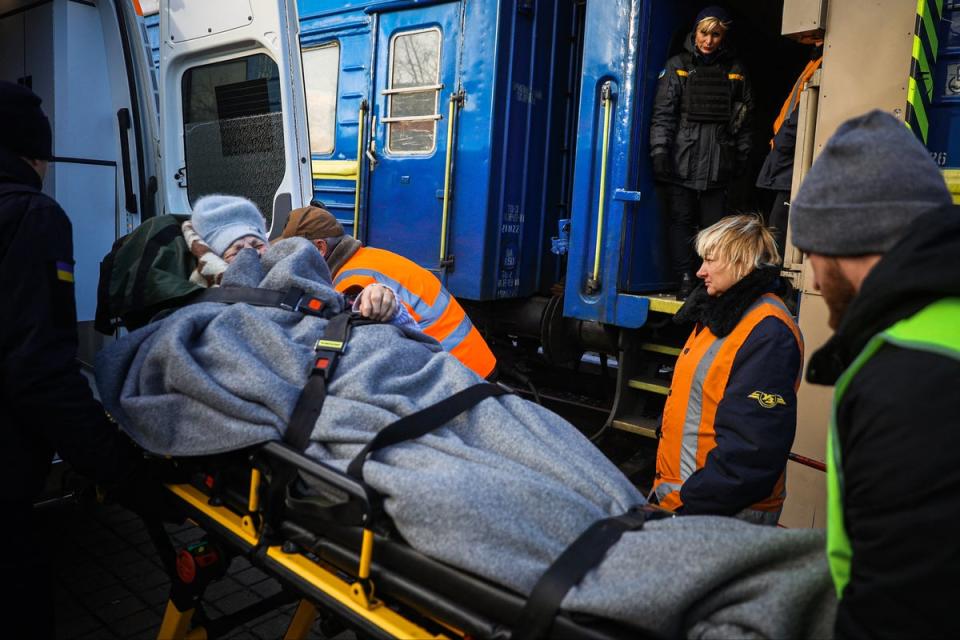Investigation: The Independent reveals hundreds of Ukrainians with disabilities vanished into Russia
The Independent is publishing a four-article series into the rampant abuses and possible war crimes committed during Russia’s full scale invasion against Ukrainians with disabilities - among the most vulnerable of all in the bloody conflict.
Hailed by the UN’s former special rapporteur on rights of persons with disabilities as “an important step in a wider debate” on the topic, the 18-month special investigation reveals that hundreds of disabled Ukrainians, including children, are feared to have been forcibly removed to Russian-held territory and into Russia itself.
In many instances, people have been held incommunicado, in squalid conditions and even forced into adopting Russian passports in order to secure treatment or care.
The fate of the vast majority of the 500 people The Independent tracked remains unknown, but there is evidence that some of the children may have been sent to “re-education camps” to learn Russian language, culture and the Kremlin’s version of history.
The series delves into the desperate plight of at least 2.7 million disabled people who live in Ukraine and have been disproportionately impacted by Putin’s war, according to the United Nations which says it is “gravely concerned” about the community.

Among the horrific crimes we document are groups of disabled people being used by Russian soldiers as human shields and deprived of food and critical medicine in frontline areas.
The research also exposes life on the frontline for people with disabilities. It zeroes in on the failings of Ukraine’s outdated care system, inherited from the Soviet Union, which relies on systematic institutionalisation from childhood - where conditions are described by UN and EU experts as “appalling”.
The series hopes to spark a paradigm shift in attitudes towards people with disabilities across all conflicts - where international law and protections appear to be failing the most vulnerable.
Gerard Quinn, the UN’s special rapporteur on the rights of persons with disabilities until November, who has extensively worked on Ukraine, said the series “paints a damning picture” of the vulnerabilities that people with disabilities face in Ukraine war and reveals the unique risks faced by them.
This series paints a damning picture of the heightened vulnerability of civilians with disabilities
Gerard Quinn, former UN special rapporteur
“This series opens our eyes to the raw human experience of war to persons with disabilities in the Ukraine conflict. It reveals the unique risks faced by persons with disabilities,” he said.
“Although technically covered by the 4th Geneva Convention on civilian protection, the adequate protection of persons with disabilities in conflict has been woefully neglected throughout the world.”
He added that readers will be “shocked” to learn that the draft UN treaty on crimes against humanity fails even to mention civilians with disabilities who, as the war in the Ukraine shows, “are the victims of violations of the laws of war as well as victims of crimes against humanity.”
He said of the Independent’s investigation: “In the name of common humanity this invisibility must be reversed and this series marks an important step in that wider debate.”
Feature: We were told we were going on a trip to the seaside – but we were kidnapped by Russia

 Yahoo News
Yahoo News 
